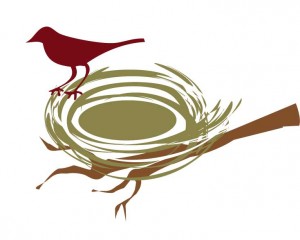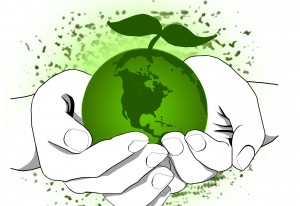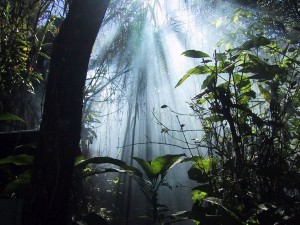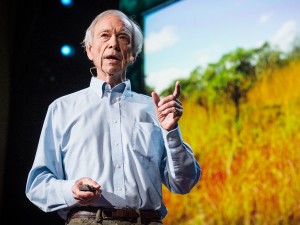 Frequently clients come to see me with a history of vegetarianism or veganism and are considering putting animal products back into their diets. It is an interesting and sometimes challenging process for them. Recently I have also seen insects making their first appearance in Planet Organic, people are confused by it and I have been explaining that it is seen as a more sustainable way to eat meat.
Frequently clients come to see me with a history of vegetarianism or veganism and are considering putting animal products back into their diets. It is an interesting and sometimes challenging process for them. Recently I have also seen insects making their first appearance in Planet Organic, people are confused by it and I have been explaining that it is seen as a more sustainable way to eat meat.
I see clients who are both considering eating animal products again, but also clients who are strict vegans. I am happy supporting both with their health concerns. I am happy that people are thinking about their choices, and the impacts of them.
A Personal Story
twelve years as a vegetarian
I hear a lot in the paleo world about ‘vegetarian recovery’, so today I thought I would share my personal story of transitioning from being a vegetarian for twelve years, and practically vegan for two, to now eating animal products once again. In retrospect it does feel like a process of personal transformation.
I became a vegetarian when I was eighteen years old, after flying the nest and arriving at university. My new best friend, Claire, had been brought up as a veggie. She was the first vegetarian I had ever really met. On day one I thought it was a bit weird, but by day seven, and one supermarket economy sausage experience later, I was ready to join her.

Saving the Planet
as a university student
I didn’t just become a vegetarian, I waxed lyrical about it to everyone I met. Deeply involved with the student environmental and ethical campaign group, ‘People and Planet’, I would often be spotted handing out leaflets or on marches and demos around the country. I was also president of the yoga society while studying human geography and world development. I completed an internship with the Fairtrade Foundation and volunteered in an Oxfam shop. My first job was working with Ethiopian and Eritrean young refugees. Saving the planet had very much become my mission in life and vegetarianism was a key part of that for me.

Planetary Transformation Starts Within
discovering mindfulness and internal enquiry
Skip forward a few years and a few burnouts later and I had become rather interested in mindfulness, internal enquiry and the idea that planetary transformation started from within. I had taken my ideas of what I wanted to digest on a daily basis to a whole new level, super inspired by the spirituality behind raw food veganism, of eating food in a pure and pristine state. I flew to a Wellbeing Centre on a Thai island several times to engage in an eleven day fasting regime, amazed at the energy levels and the emotional cleansing that this act could bring. I volunteered at raw food festivals in the UK and decided to retrain as a nutritional therapist.

Receiving Advice
from a Nutritional Therapist
Meanwhile anxiety and burnout seemed to be coming a greater and more frequent issue for me. I wasn’t very stable and eventually acknowledged that I really wasn’t very well. I went to see my favourite lecturer at college as a client. I really liked her depth of teachings. She didn’t just look at nutrition but also brought ecology and responsibility into the framework. This was a powerful moment for me. I have a photographic memory of it. She said to me ‘Katie, even though I am a vegetarian myself I don’t think it is the best diet for everybody and I really think that eating meat might be a good thing for you right now.’
It wasn’t the first time somebody had said this to me, and looking back all of my nutritional therapists had gently tried to suggest this to me, but I hadn’t been ready to receive it. Now I was. It was as though I was on my knees at the feet of a guru and had been given my mantra – ‘It might be good for you.’

I embraced this new nugget of information that I had found, but it didn’t mean that I was ready. Vegetarianism wasn’t just about what I ate, it was part of my identity, it was engrained in me to such a level that I couldn’t just let go. I still wasn’t sure that it was the right thing to do, for my conscience or for the world. Besides what would everybody think?
Shifts in Thinking
in the Peruvian Amazon
The next stage piece of the puzzle came, some time later, when I went on a voyage to the Peruvian Amazon. I went to find out more about traditional plant medicines. In total I spent three months at a restoration centre and as part of this 21 days in complete isolation in a little hut in the rainforest. This is called a ‘dieta’ and is how curanderos (spanish for traditional plant medicine therapist) traditionally train. Although of course, they spend years going through this process, I experienced only a glimpse.
The dieta is named from the diet that one eats. It is a very restricted diet, with a theory behind it similar to that of fasting. A curandero eats only rice, plantain and fish whilst he is studying. The Westerners I was there with, were all vegetarians and so we opted for rice and plantain only. I still hadn’t eaten any meat, but I was still thinking about it.
The benefits of retreat include shifts in thinking and gifts of seeing the world through fresh eyes. It was here, completely on my own in the Amazon rainforest, that I opened to the possibility that maybe veganism [at least for myself] was actually more removed from being connected to the natural world then it was about wanting to be a positive part of it. A door opened for me.

Campaigning
looking at the food industry
Since then, rather then thinking of it as wrong to eat meat I have thought it is better to personally put my efforts into improving the conditions and the legislation of the animal food industry. England is far behind other European countries in this regard and there is a lot of work to do. It is a cause that needs the energy of passionate people. The rainforest experience had powerful effects on all of us and I note that a fellow voyager, who had lead the group out to the Amazon, now also eats fish and no longer encourages participants to avoid it when on dieta.
I joined Compassion in World Farming and have been pleased to see Pasture for Life recently come into being.
The First Bite of Lamb
on Mothering Sunday
All that was left was to take my first bite. I was pretty much ready, but it needed to be the right time and place. The next spring (yes it really did take seven months) I went to visit cousins in the North of England with my aunty and uncle. It just so happened to be Mothering Sunday and my cousin had prepared a leg of lamb. My own mother died when I was young and so Mothering Sunday celebrations are not something I tend to normally be a part of. As I sat at the table and my female cousin stood up to carve I knew that it was the right moment. My rite of passage had arrived. ‘Can I have some please?’ I asked.

They all looked at me. ‘Really?!’ There was a pause, but nobody wanted to make a big deal of it. They were all very pleased and wouldn’t want to risk me changing my mind. Plus they hadn’t seen me for a while and couldn’t be sure that I hadn’t started eating meat recently. The moment passed and dinner continued. Rather self absorbed I cut, lifted, bit and chewed my first mouthful…and then chewed some more.
I wasn’t used to the texture of meat, but I ate it.
It was ok. I had made my transition.
I told the family present that it was the first time I had eaten meat in 12 years. They were shocked and also very pleased. ‘Are you really enjoying it?’ my young second cousin asked ‘It must be so good to eat meat again. Did you always miss the smell of bacon?’
‘I can’t say that I miss it or that I am enjoying it.’ I said ‘but I think it is time for me to start eating it again. ‘Oooh your dad will be so pleased!’ gushed my aunty.
Sustainability
paradigm shifts in ecology
One question was left for me, that of sustainability. How could we feed all the mouths on the planet this way? This is still an issue I remain interested in, alongside animal welfare. I found the work of Allan Savoury and really recommend his elegant and astounding TED talk. His research brings about a paradigm shift in ecology and his findings suggest that to prevent desertification in some parts of the world we need to INCREASE livestock by 400%. This is not the message that we are used to hearing, but just as the public health message of ‘fat is bad’ has not brought about the health change that it was intended to do, the reduction of grazing in Africa has also not always had positive effects. A shift in thinking, if it works, could be deeply replenishing for thirst of the Earth as well as for our own decisions to eat meat.

I’m now reading ‘Defending Beef’ by former environmental lawyer Nicolette Hahn Niman – which goes into other ecological issues in a lot of depth, It’s really fascinating reading. (as is Beyond Broccoli by Susan Schenck which looks at the anthropological history behind Indian spiritual reasons for vegetarianism).
Models of permaculture can also show the integration of animals such as chickens. Their manure is essential. I like how Chris Kresser describes the paleo diet; “a plant based diet that also contains some animal products.” We do not need to eat a lot of meat, vegetables should still be the predominant focus of a healthy diet. I do not have all the answers to questions of sustainability, but I think the momentum of the movement has changed and that we need to look for solutions that include animals and the environment. Eating insects is put forward as one of these.
On a practical level my goals have changed. I have become comfortable at handling meat, cutting it and using organs such as liver. I’m learning more about using different cuts of meat and cooking with whole fish.
Funnily enough I recently met a friend who used to run the raw vegan food festivals I attended. He now also eats meat, but only raw meat. He told me that it was working in a fishmonger’s as a student that encouraged him to become a vegan, but now, full circle he is really grateful for all the skills that he learnt there. We shared stories about ‘coming out’ and giggled over herbal tea.
The Road to Recovery
The so called ‘road to recovery’ can be a long path for a vegetarian. Maybe not for everybody, some people only go vegetarian for a short period time or embrace the change quickly. Yet for many there is a quite a process between statements of ‘I don’t eat meat’ and ‘I eat meat’! The granting of personal permission; the coming out to friends, family and colleagues; the emotions, beliefs, tastes, textures; knowing how to handle raw meat, what to do with it and how to prepare and cook it – these are all stages that one may need to pass through. It can be a real process of transformation, but a beautiful one, like other quests that we embark on in life.
Picture Credits: c2sees2, freebirdsunited, huffpost, art is fun, rainforest centre, fleece inn, TED

I once read the biography of a man who was so advanced spiritually to the point of seeing his spiritual guide in the flesh only to dismiss this gift as the devil and revert to the membership of an envangelical sect. I could not but feel feel sorry for such self-sabotage and at tbe same time envy for what he had accomplished which i could only dream of.
I couldn’t help having the same feelings for you. Sorrow for your downfall from grace, envy from your training as a naturopath.
At a time when scores of studies have proved the lethal effects of meat/fish/dairy diet, and countless documentaries by animal rights campaigners exposing the inhumane life and death of farm animals, your claim to ‘recover’ from a vegan diet runs against all truth and common sense and stands as a discredit to you as a naturopath. What you had was a severe ego brainwash and takeover who wiped all you progress and put you back on square 1.
I logged in to this website looking for vegan nutritionists to refer my sick clients to, people who got sick by the diet that you are advocating. This is like putting the fox guarding the chickens.
I thought all naturopaths treated patients with natural foods for the human beings – fruits, vegetables and herbs. Now I’m confused and scarred and paranoid too as from now on I ‘ll expect conspiracy and deceit in every therapy.
If you care to watch (youtube) some reputable work by the wisest and most compssionate infividuals in the field of nutrition and animal rights try Dr. Neil Barnard MD, Dr. Steve Lawanda MD ,James Aspey, (Your wake up call), James Wildman (101 reasons to go vegan).
I pray that you find your way out of temporary darkness, recover your wisdom rudder back again and continue your journey towards the light.
lovely article Katie, really honest and thoughtful, will be a useful read for anyone who is considering whether a plant-based diet is right for them at this time.